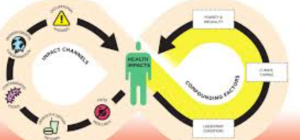Top High-Demand Careers for Healthcare Leadership Graduates

The healthcare industry is evolving at a rapid pace, presenting a wide array of exciting opportunities for masters in healthcare leadership graduates. The combination of an aging population, advancements in technology, and a focus on improving patient outcomes has created significant demand for educated leaders who can drive change in this vital sector. But where exactly can healthcare leadership graduates make their mark? This blog explores trending, high-demand careers that are shaping the future of healthcare management.
Why Healthcare Leadership Graduates Are in High Demand
Healthcare is more than just doctors and nurses. It’s a complex industry that relies on skilled administrators to ensure facilities run efficiently, policies are implemented effectively, and patients receive the best care possible. According to the Bureau of Labor Statistics (BLS), employment in medical and health services management is projected to grow by 28% between 2022 and 2032, much faster than the average for all occupations. This growth translates to over 136,200 new jobs in the coming decade.
The demand for healthcare leaders is driven by various factors, including the aging Baby Boomer population, healthcare regulatory changes, and the adoption of advanced digital technologies like electronic health records (EHR) and artificial intelligence.
Now, let’s explore some of the top high-demand careers for healthcare leadership graduates.
1. Healthcare Administrator
Healthcare administrators, sometimes referred to as healthcare managers, oversee the day-to-day operations of medical facilities like hospitals, clinics, and nursing homes. These professionals ensure that the healthcare system functions smoothly by managing budgets, staff, and compliance with regulations.
Key Statistics:
- Median Salary (2022): $101,340/year (BLS)
- Job Growth (2022–2032): 28% increase
- Typical Workplaces: Hospitals, outpatient clinics, long-term care facilities
Healthcare administrators play a vital role in adapting to regulatory changes and enhancing operational efficiency, making this an in-demand career.
2. Health Informatics Specialist
With the digitization of healthcare, roles in health informatics have surged in popularity. Health informatics specialists use technology and data analysis to organize and optimize the flow of patient information.
Key Statistics:
- Median Salary (2022): $100,610/year (Payscale)
- Job Growth (2022–2032): Anticipated increase in demand as EHR and AI adoption grows.
- Typical Workplaces: Hospitals, research firms, IT companies in healthcare
This career is perfect for those with a passion for merging healthcare leadership and data-driven tech solutions.
3. Clinical Director
Clinical directors lead clinical teams to deliver high-quality care. They focus on patient safety, policy development, and implementing evidence-based practices.
Key Statistics:
- Median Salary (2022): $98,000/year (Glassdoor)
- Workplaces Hiring Clinical Directors: Hospitals, specialty clinics, and outpatient centers
- Skills Needed: Management expertise, policy implementation, and empathy
Clinical directors thrive in roles where they can both lead teams and shape the future of care delivery.
4. Healthcare Policy Analyst
Healthcare policy analysts evaluate and develop health policies to ensure they align with industry goals and governmental regulations. Graduates with leadership skills and a passion for understanding how policies impact populations might find this role attractive.
Key Statistics:
- Median Salary (2022): $71,858/year (PayScale)
- Job Growth Drivers:
- Increased focus on health equity
- Expanding public health programs
- Typical Employers: Government agencies, think tanks, non-profits
This role offers a unique intersection of healthcare management and public service, making it a fulfilling and growing profession.
5. Supply Chain Manager in Healthcare
The pandemic highlighted the importance of efficient supply chains in healthcare. Supply chain managers are responsible for ensuring the delivery of essential medical supplies and equipment, playing a crucial role in patient care.
Key Statistics:
- Median Salary (2022): $81,000/year (Salary.com)
- Typical Work Settings: Hospitals, pharmaceutical companies, medical device manufacturers
Supply chain managers with strong leadership and logistical skills are now indispensable in modern healthcare settings.
6. C-Suite Roles in Healthcare
For healthcare leadership graduates with aspirations to reach the highest levels of decision-making, C-suite roles like Chief Operations Officer (COO) or Chief Executive Officer (CEO) in hospitals or healthcare systems are ideal. These roles involve setting strategies and driving innovation across healthcare organizations.
Key Statistics:
- Median Salary for Hospital CEOs (2022): $153,084/year (PayScale)
- Job Growth (2022–2032): Increasing demand for strong leadership at the executive level, especially in larger health systems
These positions require advanced leadership skills, strategic thinking, and a vision for organizational growth.
Secure Your Spot in an Evolving Industry
Healthcare leadership graduates have countless opportunities to make an impact in an industry that touches millions of lives daily. Whether you’re drawn to data analytics, clinical management, or policy development, the demand for skilled professionals is only expected to grow.
Actionable Tip: To position yourself as a top candidate, focus on building skills in technology integration, compliance, and data analysis—core areas driving change in healthcare leadership.
By exploring these high-demand roles, you can carve out a fulfilling career that combines purpose, innovation, and leadership.






